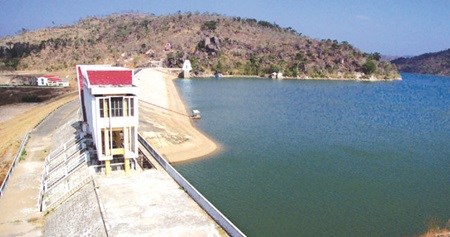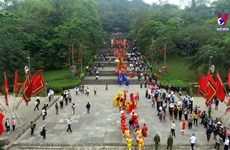Vietnam eyes better reservoir management
Vietnam must improve the management of its numerous reservoirs to protect the rights and interests of residents in the downstream areas.
 The water reservoir Auyn Ha in Gia Lai province has been renovated 10 years after it was put into operation. (Photo: VNA)
The water reservoir Auyn Ha in Gia Lai province has been renovated 10 years after it was put into operation. (Photo: VNA)Experts said the effects of climate change and natural disasters are becoming more unpredictable, while an insufficient number of weather stations in upstream areas has resulted in inaccurate weather forecasts. This is particularly dangerous during the rainy season because reservoirs may release water into areas already affected by floods.
Numerous reservoirs were designed and constructed to optimise the operation of hydropower projects. However, experts said operations to prevent and reduce flooding, and to maintain the water supply for downstream regions, have not been properly studied and reinforced.
Dr. Nguyen Lan Chau from the Ministry of Natural Resources and Environment (MONRE) said the management of reservoirs should also encompass the collection of weather statistics, rather than depending on information provided by weather forecast agencies.
Chau said having dedicated weather stations would allow managers to be proactive in their operations and reduce error rates.
Experts stressed the need to build a more comprehensive reservoir management system that prioritises structural safety, efforts to reduce adverse effects of flooding, and initiatives to maintain the water supply in downstream areas and optimise power output for hydro power projects.
Last year, the central city of Da Nang threatened to sue the MONRE and the Dak Mi 4 Hydropower project unless changes were made to its reservoir management and operation model.
Huynh Van Thang, Deputy Director of the city's Department of Agriculture, told VnExpress that the hydropower project significantly reduced the amount of water on the Vu Gia river, affecting about 1.7 million residents in Dai Loc, Dien Ban, Hoi An and Da Nang.
Thang said the rights and daily lives of millions in downstream regions must be prioritised over power-generating projects upstream.
Just last week, Prime Minister Nguyen Tan Dung approved the management model and operations for reservoirs in the Vu Gia-Thu Bon river basin. The model outlined priorities for reservoir management during the rainy season - September 1 to December 12 - which include reservoirs' safety, anti-flooding operations for downstream regions and hydroelectric power.-VNA













